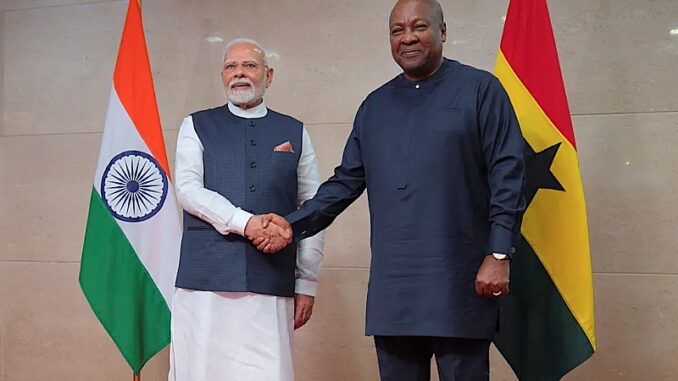
In a landmark visit, Indian Prime Minister Narendra Modi arrived in Ghana, the first Indian leader to do so in over three decades, reigniting a partnership deeply rooted in shared history and south-south cooperation.
The visit marks the first leg of Modi’s five-nation tour, reinforcing India’s diplomatic and economic footprint across the Global South. Indian PM’s visit can be traced to links between Kwame Nkrumah, Ghana’s first president, and his Indian counterpart, Prime Minister Jawaharlal Nehru, in 1957. During talks at Jubilee House — built with Indian assistance — President John Dramani Mahama and PM Modi agreed to elevate ties to a “Comprehensive Partnership.” Four bilateral agreements were signed, including in cultural exchange and standards collaboration. The two leaders explored deeper cooperation in energy, defense, health, and infrastructure, with Modi emphasizing investment and development partnerships.
India is Ghana’s third-largest trading partner, with bilateral trade reaching $3.3 billion in 2023, and over 700 Indian projects are active in the country. According to a new analysis published by The Conversation, Modi’s visit aims to strengthen these ties while repositioning India as a partner of choice in West Africa where it’s seen as “perennial underdog” amid growing Chinese influence. Modi also seeks to redefine India’s role — not as a neo-colonial actor, but as a “smart influencer,” relying on cultural bonds, development finance, and education initiatives. As Ghana navigates a complex geopolitical landscape, Modi’s visit affirms India’s commitment to non-alignment-era principles — mutual respect, development, and a multipolar Global South.
